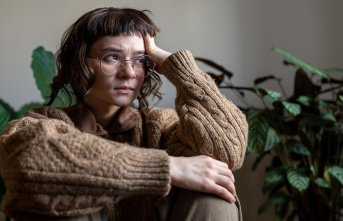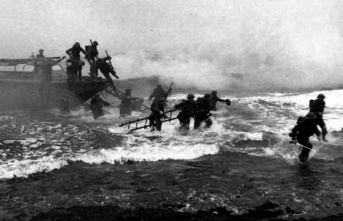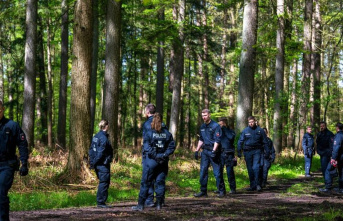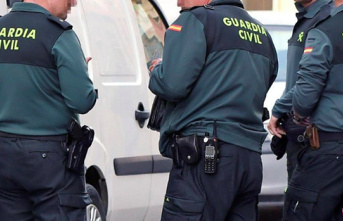BOSTON aEUR
She has been rattled by many things, but none more than the school shooting in Uvalde Texas last week.
Clements explains that she was "essentially blind" when she first heard about the shooting.
Clements was 16 when a shooter shot and killed 20 children, six teachers, at Sandy Hook Elementary School, Newtown, Conn. in 2012. Clements was locked down at her high school, a mile away, and crouching underneath a table. Clements was afraid for her safety aEUR" as well as her mother, Sandy Hook's second-grade teacher, who was trying to distract her students from the gunshots just a few classrooms away.
Clements would cry for hours after hearing that her mom was safe. They also mourned the loss of dozens of other people. After the shooting at Uvalde, she says that many of those memories, which had been long forgotten, came back to her.
She says, "To see the faces of the children and the primal screams of parents realizing their child hasn't left the building, that are so starkly comparable to what we experienced aEUR", that my brain may have been trying to protect myself from aEUR' seeing those forced infront of me, it really is a shock to the system."
Clements says that the shock quickly became anger.
She cries out, "It's because so many of us tried to help pass gun control legislation so that another community wouldn’t have to experience the same thing we did."
Clements is just one of many students who took up political activism after being victim to a school shooting that turned their lives around. They have organized protests, marches, and teach-ins. They lobby legislators and even ran for office. Clements founded the Junior Newton Action Alliance, a student advocacy group. He has spent almost a decade running youth summits and trainings.
She says she was compelled to take action just days after the shooting when she heard from the NRA that gun violence could be solved by addressing all other issues than guns.
Clements recalls vividly "I can clearly remember standing in my living-room with my parents and hearing [CEO] Wayne Lapierre, NRA, say that this isn't about guns."
In fact, the NRA's initial statement following the shooting blamed politicians, the media for giving attention to killers, prosecutors not going after violent criminals and video games and movies that glorify violence.
Clements claims that Lapierre's call to arm security at all schools was what really drove her mad, as "the only thing that stops an evil guy with guns is a good man with guns."
Clements said, "That just ignited some in me." It was an offensive comment.
Clements said she felt the same fury hearing calls to arm teachers and reports of poor decisions made by Uvalde law enforcement.
She says, "If even the most highly trained police officers and military personnel could not do that," she adds.
Her mother, a Newtown teacher and activist, was one of those who protested the NRA annual convention. She also urged tighter gun restrictions to make schools safer.
Abbey Clements stated, "We have too much guns in our country." "Teachers walk in every day, crying, and having to answer questions from students. But we don't know how to respond. It's wrong.
A new wave of survivor and student activism has emerged since Uvalde, just as Newtown mobilized Clementses. However, the past decade has shown that momentum can wane just like quickly. This only makes it more difficult for activists like them. They've had some successes at the state level in their 10 years of activism, including tougher background checks and waiting periods, red flag laws, but not yet from Congress.
It's been heartbreaking to watch for Sarah Clements. She says that Sandy Hook's murder and the subsequent deaths of six teachers and 20 children was enough for her to be crushed by Congress not passing the universal background checks legislation. She now believes there might never be enough.
She says, with a voice that is almost in tears, "I believe that there are not enough shootings or bodies for the people who refuse to act, and that I don't know how to explain it."
Clements said, "It's so frustrating" that the NRA has cowed politicians and refused to pass gun laws that most Americans support. The same politicians are saying, "stop politicizing the events."
She says, "I try so hard to not be jaded." Clements admits that she is unable to find reason for optimism after witnessing so many mass shootings and the promises of action that never materialize.
She says, "I used to know the answer to this question," her voice breaking again in emotion. "Like 10 year ago, I would talk to you about the growing movement of young people protesting their schools. I would have been hopeful even five years ago if there were so many things. Right now, I am just not.
Clements insists that she will continue to do the work because it is a way for her to remember those who died and because it can be therapeutic.
She says that "to actually stand in Congress for example and be heard and have power for a moment, you realize you need to keep at it, you have have to keep going, tell your story to anyone who will listen, because this is something you don't want others to experience."
She says, "It does take its toll on your spirit."
It is frustrating to realize that students are responsible for driving change. She insists that eventually, however, the change will come from her generation. This includes those who were raised in active shooter drills and those who hid from actual gunmen.












